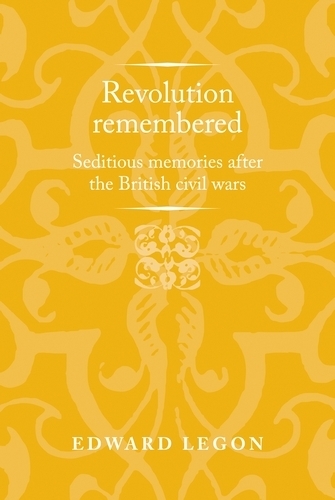
Revolution Remembered: Seditious Memories After the British Civil Wars
(Paperback)
Available Formats
Publishing Details
Revolution Remembered: Seditious Memories After the British Civil Wars
By (Author) Edward Legon
Manchester University Press
Manchester University Press
28th September 2021
United Kingdom
Classifications
General
Non Fiction
Civil wars
Early modern warfare (including gunpowder warfare)
Oral history
European history
History and Archaeology
Pressure groups, protest movements and non-violent action
941.06
Physical Properties
Paperback
248
Width 156mm, Height 234mm, Spine 13mm
354g
Description
After the Restoration, parliamentarians continued to identify with the decisions to oppose and resist crown and established church. This was despite the fact that expressing such views between 1660 and 1688 was to open oneself to charges of sedition or treason.
This book uses approaches from the field of memory studies to examine 'seditious memories' in seventeenth-century Britain, asking why people were prepared to take the risk of voicing them in public. It argues that such activities were more than a manifestation of discontent or radicalism - they also provided a way of countering experiences of defeat. Besides speech and writing, parliamentarian and republican views are shown to have manifested as misbehaviour during official commemorations of the civil wars and republic. The book also considers how such views were passed on from the generation of men and women who experienced civil war and revolution to their children and grandchildren.
Reviews
[] thoroughly researched, clearly structured and well argued. A university lecturer in heritage management, Legon has a good eye for the telling detail and quotation, and shows skill in marshalling his many examples.
R. C. Richardson, University of Winchester, Times Higher Education, April 2019
'The project has certainly resulted in a valuable piece of scholarship, and Legon has used the available materials with sensitivity and verve. There is much to commend Revolution Remembered, and it will be an influential addition to the historiography of the Restoration.'
David J. Appleby, Journal of British Studies
Author Bio
Edward Legon is Lecturer in Heritage Management at Queen Mary University of London
